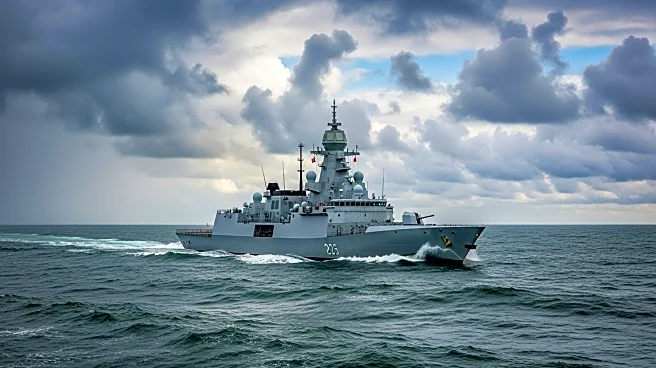What is the story about?
What's Happening?
NATO has conducted a significant military exercise in the North Sea, showcasing its military capabilities in response to perceived threats from Russia. The exercise, named Neptune Strike 25-3, involved the USS Gerald R. Ford aircraft carrier, supported by 20 ships and 10,000 military personnel from 13 countries, including US destroyers and French and Danish frigates. The exercise featured F-18 fighter jets and other military assets in a coordinated display of strength. This comes after a Russian reconnaissance aircraft flew over a German frigate at low altitude, raising concerns about Russian military activities in the region.
Why It's Important?
The exercise underscores NATO's commitment to maintaining security and stability in the region, particularly in light of increasing tensions with Russia. By demonstrating military readiness and coordination, NATO aims to reassure member countries and deter potential aggression. The involvement of multiple nations highlights the alliance's unified stance against threats to its eastern flank. This development is crucial for U.S. foreign policy and defense strategy, as it reinforces the country's role in international security and its support for NATO allies.
What's Next?
NATO is likely to continue monitoring Russian activities closely and may conduct further exercises to enhance readiness and deterrence. The alliance's actions could prompt diplomatic responses from Russia, potentially affecting international relations. Member countries may also increase defense spending and collaboration to bolster security measures. The situation may lead to discussions on strategic adjustments within NATO to address evolving threats.
Beyond the Headlines
The exercise highlights the ongoing geopolitical tensions between NATO and Russia, with implications for global security dynamics. It raises questions about the balance of power in Europe and the effectiveness of military deterrence. The event may influence future defense policies and international alliances, as countries assess their security needs in a changing geopolitical landscape.
















